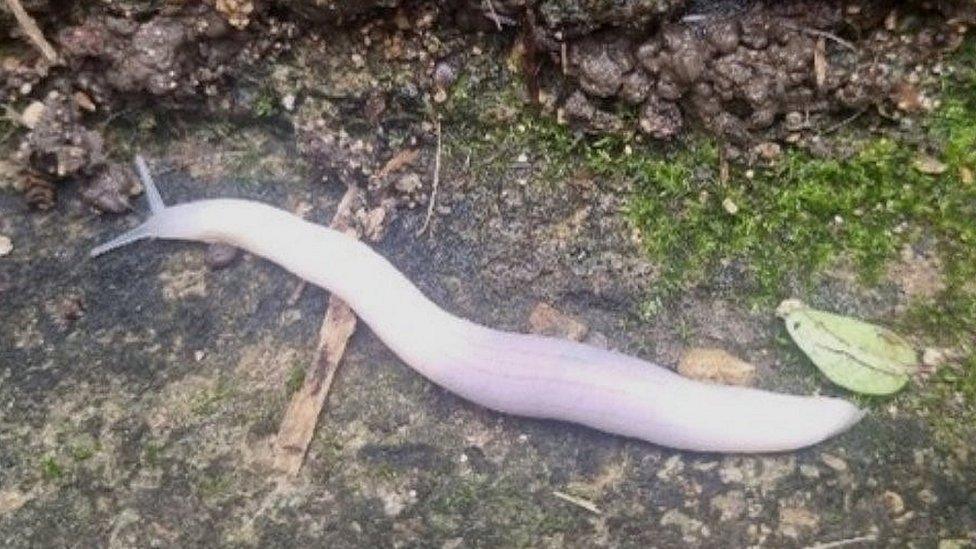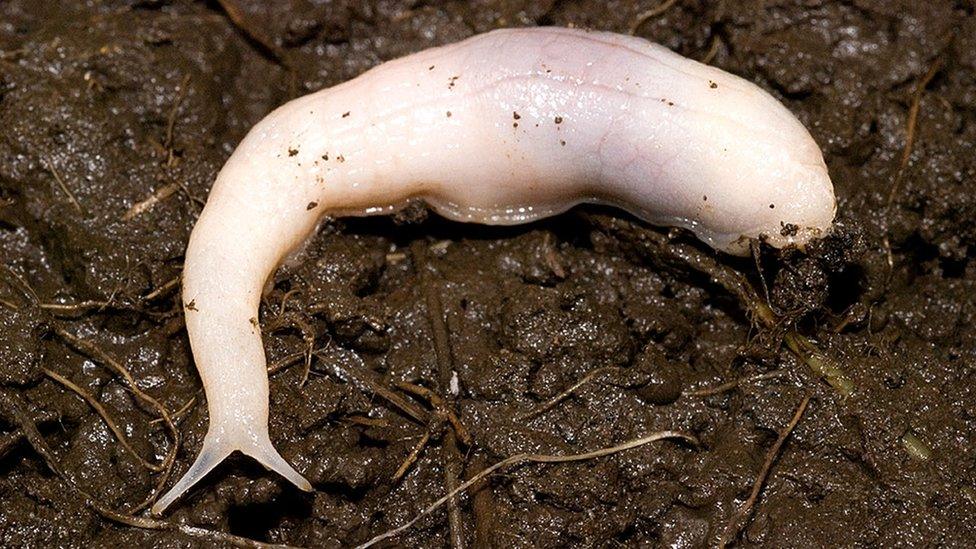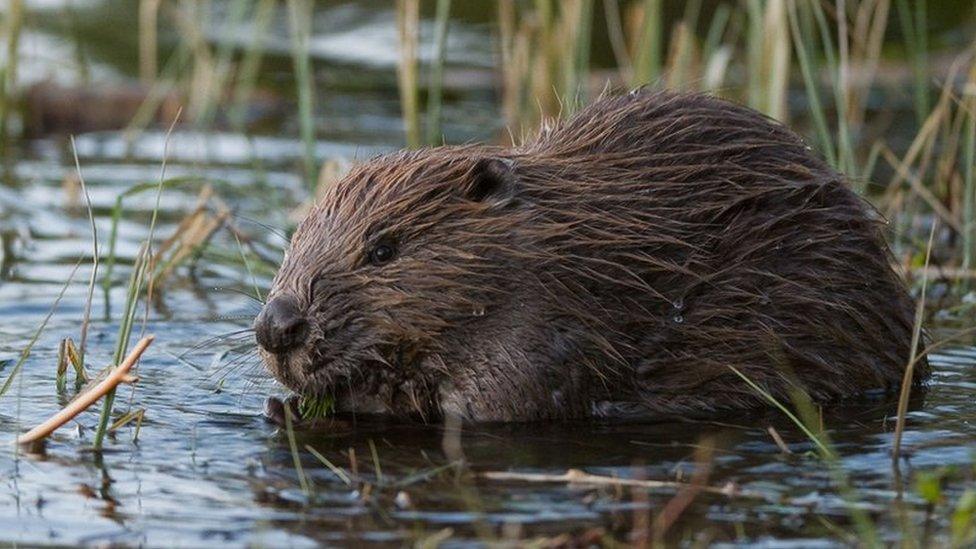Rare worm-eating ghost slug spotted on Stroud path
- Published

The blind ghost slug, as it is known, was spotted by chance making its way along a path near Stroud
A rare "ghostly white", worm-eating slug has been found in Gloucestershire.
The blind ghost slug, as it is known, was spotted by chance making its way along a path near Stroud.
The slug - Selenachlamys ysbryda - is not native to the UK and was first recorded in South Wales in 2007.
Tina Bouttle from Gloucestershire Wildlife Trust, said: "They've come over from Ukraine and they're gradually moving across from Wales into England."
Unknown to science before 2006, the mysterious ghost slug was first discovered in a lane in Caerphilly.
A year later a specimen was unearthed by a gardener in Cardiff.
Ms Bouttle, said the "unique" sighting in Stroud has been confirmed by the British Conchological Society.
"They've quite elusive. These guys are cave dwellers, usually, they are subterranean so they will dig down about a metre in depth so they're not usually found," she said.
"This one was seen going along a path so that's quite unusual."

The carnivorous ghost slug sucks up earthworms with powerful, blade-like teeth
Unlike most slugs, the ghost slug is carnivorous killing earthworms at night with powerful, blade-like teeth, sucking them in like spaghetti.
Ms Bouttle said there are no "pure white" slugs native to the UK so if one is spotted it is probably a ghost slug.
"They are quite easy to identify. They are ghostly white. You won't miss it," she said.
"The breathing hole on a slug is usually at the front but in this species it's way at the back and so is the mantle - which is like a saddle on the slug."
Thought to be a native of Ukraine, the slug may have travelled into the UK in the soil of pot plants.
But Ms Bouttle said they are an unwelcome visitor.
"They're gradually moving across from Wales into England," she said.
"It's not great - that's why we're monitoring them. They feed on earth worms so we don't really want this species in the UK."

Follow BBC Somerset on Facebook, external and, X, external. Send your story ideas to us on email, external or via WhatsApp on 0800 313 4630, external.
Related topics
- Published25 January 2020
